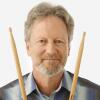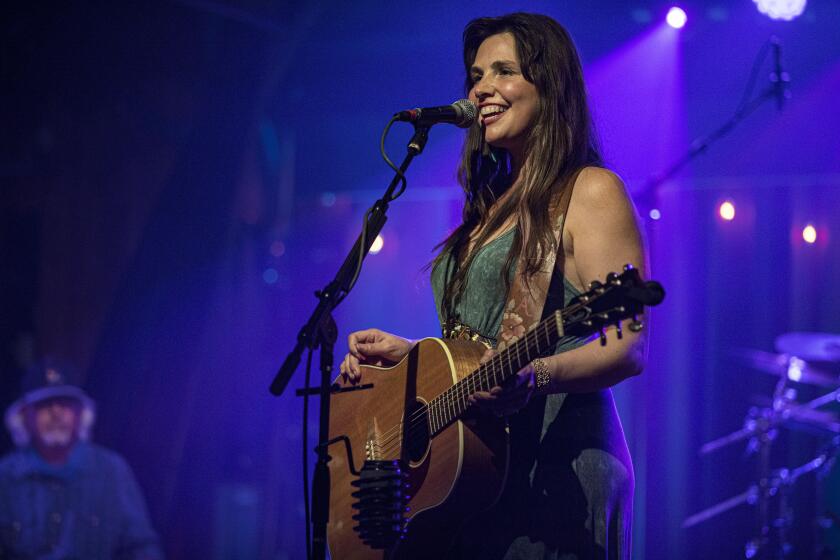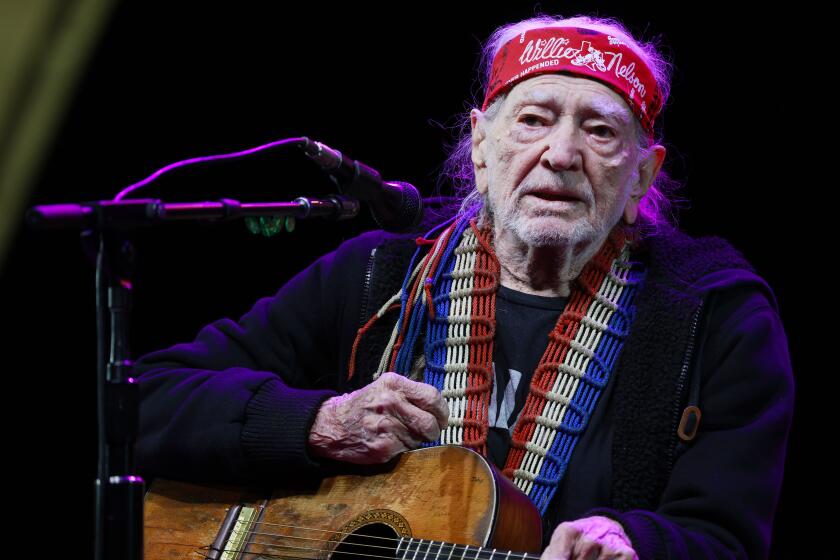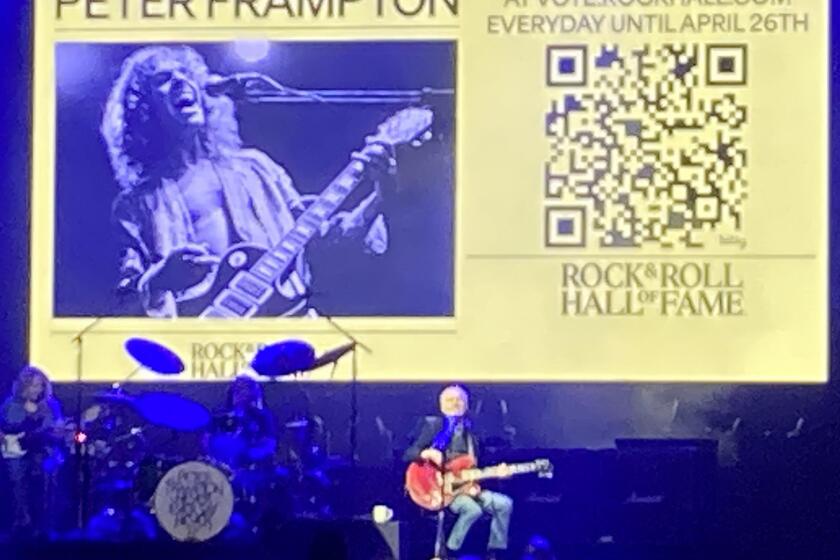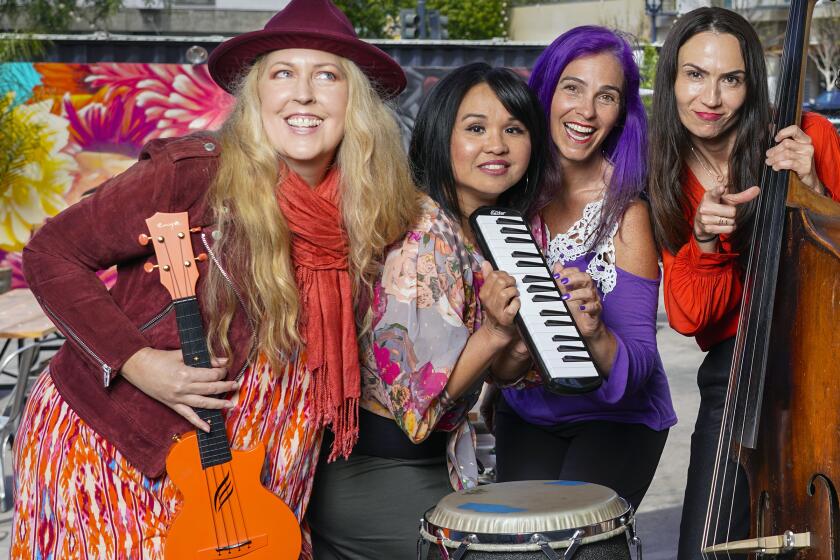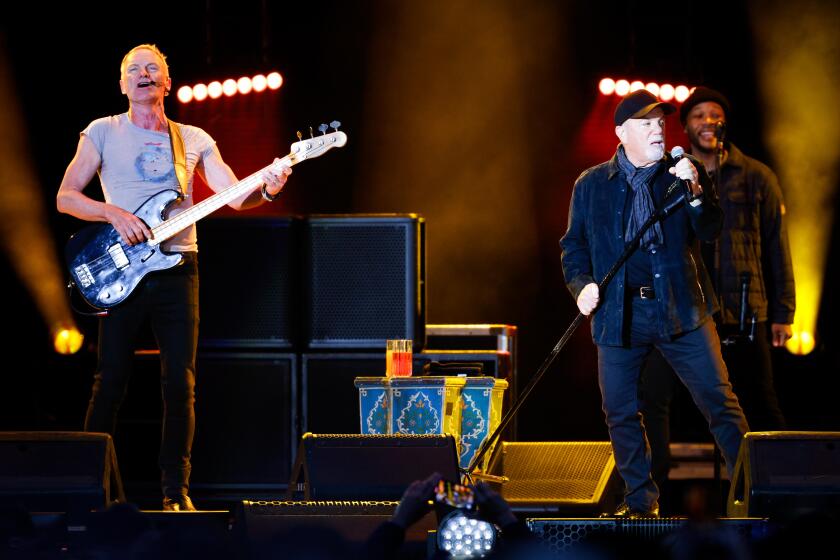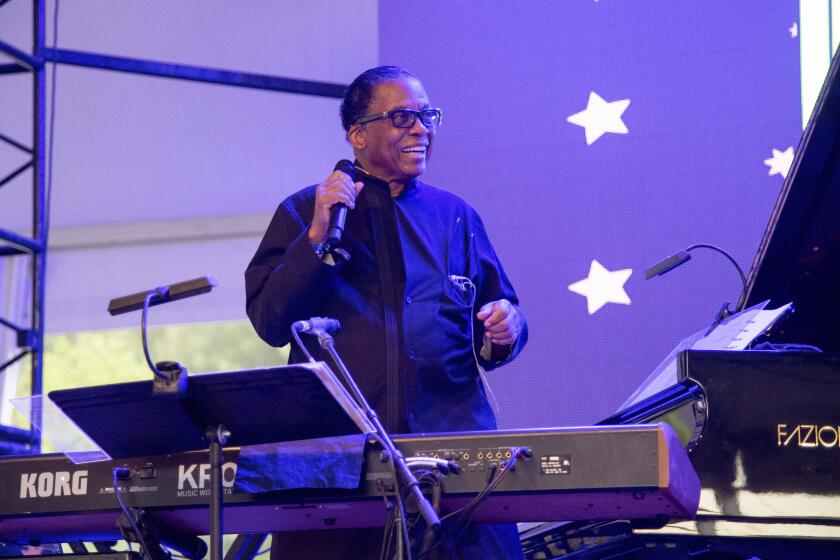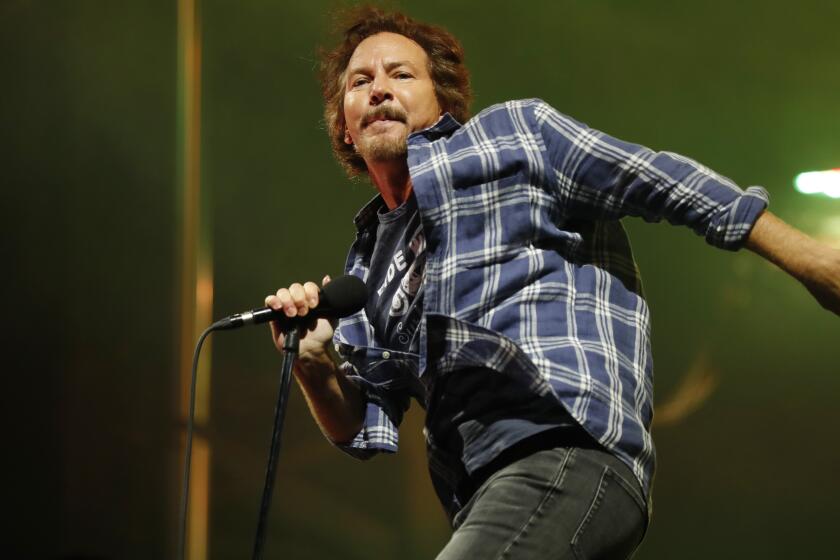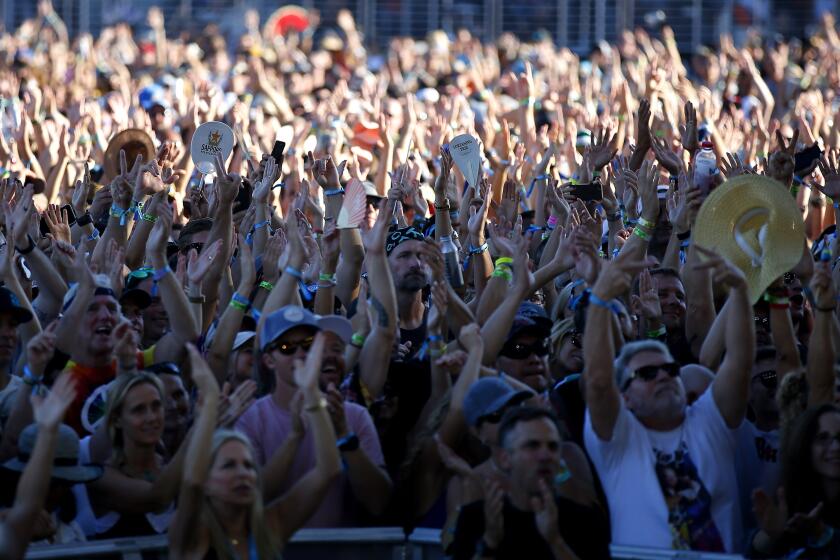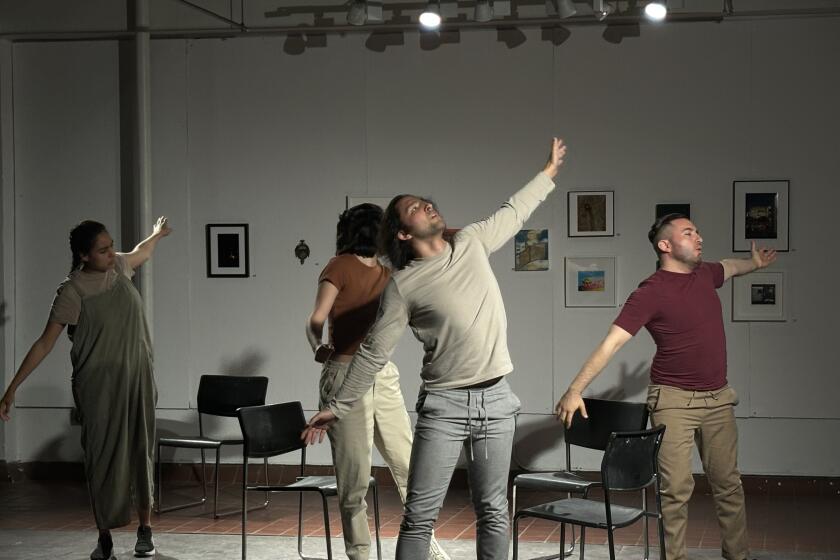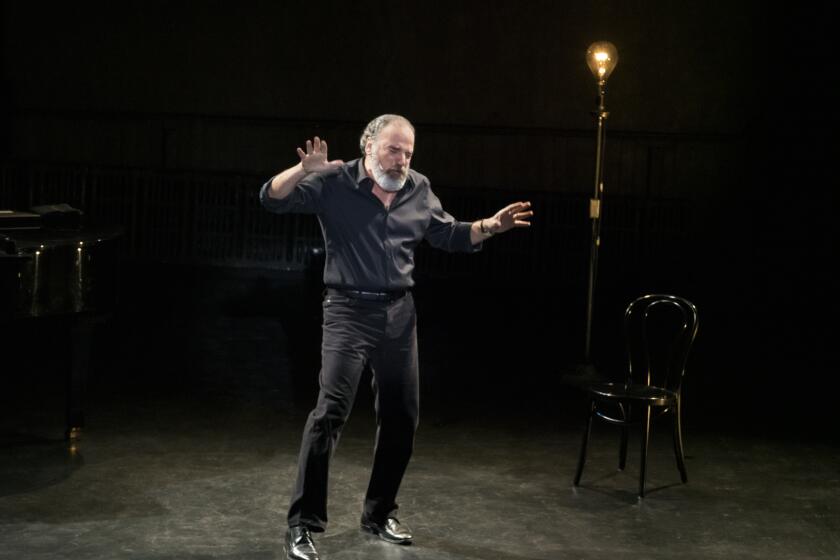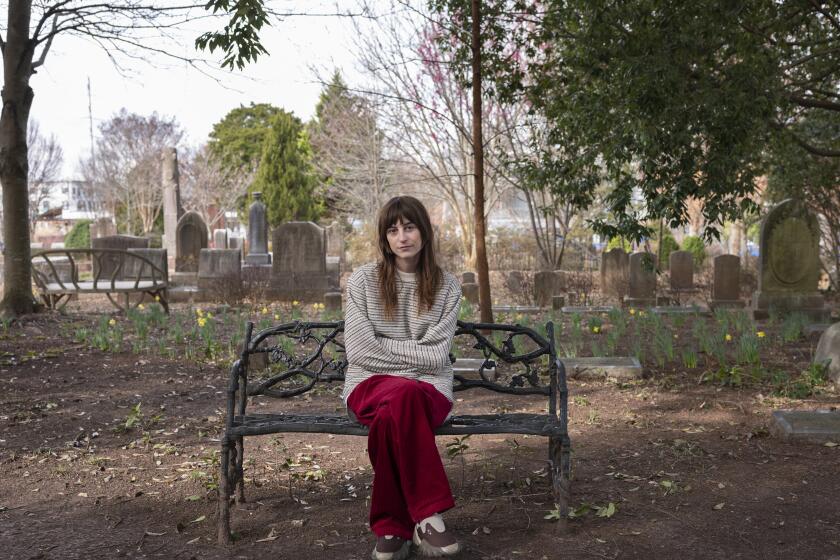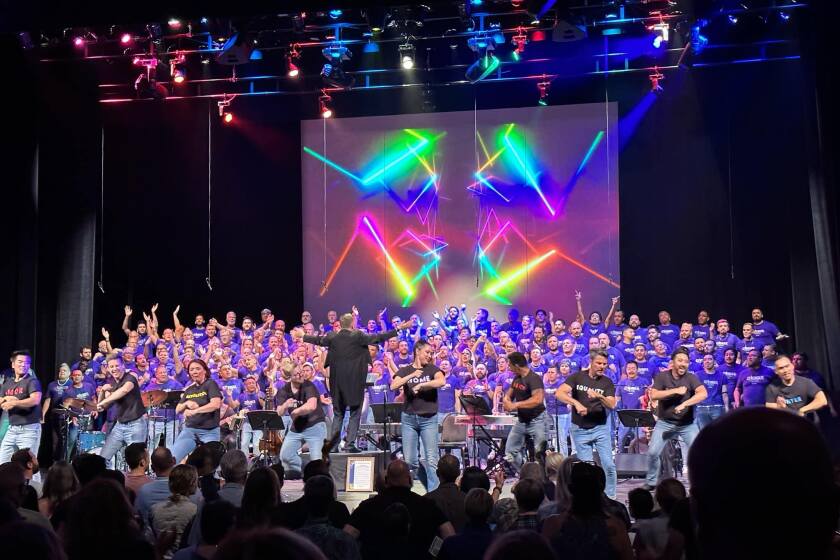Yes marches on, after death of band’s co-founder
Alan White was already one of England’s more prominent young drummers when he replaced Bill Bruford in the pioneering progressive-rock band Yes in 1972. Now, barely two months after the death of Yes bassist and co-founder Chris Squire, White and the band are embarked on Yes’ first tour in its 47-year history without Squire.
“It’s not going to be easy playing with a different bassist,” said White, who will perform with the Squire-less Yes Saturday, Sept. 5, at Pala Resort & Casino. Billy Sherwood, who first worked with the group as a guitarist and keyboardist in the 1990s, is filling in for Squire on this tour.
“Chris and I played together, constantly, for 43 years,” White continued, “so obviously he’ll be missed greatly. But we have to move on.”
The veteran drummer admits he was uncertain whether to even consider continuing without Squire, who co-wrote such Yes classics as “Roundabout,” “Close to the Edge” and “Starship Trooper.” His virtuoso bass work and soaring harmony vocals were such key components of the band’s music that they became Yes trademarks.
Squire was 67 when he died June 27 in Phoenix. He had only disclosed in May his diagnosis of acute erythroid leukemia. Yes subsequently announced in a news release that — in order for him to receive treatment for his disease — the towering bassist would sit out this summer’s tour, which began Aug. 7 in Connecticut. The plan was for him to rejoin Yes later this year, or sometime next year, after he had recovered.
His death took everyone by surprise. The decision for Yes to not cancel its tour was largely the result of encouragement from Squire himself.
“In the back of my mind, I was wondering: ‘How are we going to do this tour without Chris?’ ” White recalled.
“Then he called me, and asked me to please keep the band going, if things didn’t work out. It’s been very difficult, but (having his blessing) made it easier to carry on without him.”
Each concert in the current Yes tour includes a tribute segment to honor Squire. There is an added sense of loss and continuity with the tour, which is co-headlined by the veteran American band Toto. Mike Porcaro, Toto’s bassist and co-founder, died March 15, following a battle with amyotrophic lateral sclerosis, which is also known as Lou Gehrig’s disease. He was 59.
John Lennon extends an invitation
White is now 66. He was barely 16 when his first band, the Blue Chips, released its first single in 1965. Before the decade was over, he had recorded, toured, or both with top English blues-jazz saxophonist Graham Bond, Airforce (the three-drummer band led by Cream co-founder Ginger Baker), Terry Reid (who famously turned down Jimmy Page’s invitation to join Led Zeppelin and recommended Robert Plant instead), and not one, but two Beatles — George Harrison and John Lennon.
“My band, The Griffin, played in a lot of London clubs and John heard us,” White recalled. “He was trying to find my phone number. And somebody I knew, who worked at Apple (The Beatles’ record label), gave him my number.”
Faster than you can say “Imagine” or “Instant Karma” (two classic Lennon recordings that both feature White), the drummer received an invitation in September 1969. His only instructions were to bring his passport.
“John called me one night and sent a limo to pick me up the next morning, which took me to the British Airways’ lounge at the London airport,” White recalled. “I walked in, and there was John, Yoko (Ono) and (bassist and longtime Beatles’ pal) Klaus Voorman. I sat down and introduced myself, and everybody welcomed me. Then, Eric Clapton walked out of the bathroom, and John said: ‘Have you met Eric? He’s also in the group.’ ”
The “group” in question was the Plastic Ono Band, which did its debut concert the next day in Canada at the Toronto Rock and Roll Revival Festival — and never performed in concert again. The resulting album, John Lennon/Plastic Ono Band’s “Live Peace in Toronto,” featured rock classics from the 1950s and some then-new songs, including the Lennon-penned anthem “Give Peace a Chance.” The eight-song release sold millions of copies.
White laughed when asked where the fledgling band held its rehearsal before taking the stage in Toronto.
“There wasn’t one!” he said. “We just ran through a few things on the plane, with a couple of acoustic guitars and a pair of drumsticks.”
Just say Yes
In 1972, White was in Rome for the final night of a tour with Joe Cocker, the vocal powerhouse whose career soared after his riveting performance at the 1969 Woodstock festival. White and Jim Keltner were the dual drummers in the European edition of Cocker’s all-star band, Mad Dogs & Englishmen.
Then came another fateful phone call. This time, though, it wasn’t from a Beatle.
“My business manager called me from London and said: ‘You’d better get back here on an earlier flight. Yes want you to join,’ ” said White, who had been roommates with Yes album producer Eddie Offord and sat in with the band for one song, “Siberian Khatru,” at a rehearsal a few months earlier.
White flew back to London and met with Squire and Yes singer Jon Anderson. They invited him to replace Bruford, who had just left Yes to drum in the more edgy English progressive rock band King Crimson.
“I said: ‘OK, well, I’ll give it a try. Give me three months, and I’ll give you three months to see if I’m enjoying myself and to see if everything is working out,’ ” White told Squire and Anderson at the time.
“As I was leaving, they said: ‘Oh, by the way, we have a show on Monday in Dallas, so you have to learn the whole repertoire.’ I only had three days, so it was a bit of a struggle, but I pretty much got everything right. The second, third and fourth nights of that tour, I made more mistakes. We did the live album (1973’s ‘Yessongs’), then (1974’s) ‘Tales from Topographic Oceans,’ and we’ve done 21 more albums since then.”
In the 1970s, Bruford was justly acclaimed as one of the top drummers in, and beyond, the world of prog . He brought a jazzy elan to Yes’ music, negotiating even the trickiest time signatures and changes with deft aplomb. White, who had been noted as more of a straight-ahead rock drummer before joining Yes, welcomed the challenge.
“I had to change my style of playing,” he noted. “Bill was more of a jazz-styled player. Whereas, I was much more rock ‘n’ roll, coming from a — let’s say — more meaty direction. But I had the capability of playing the jazz type of feel to it as well. That was my ambition as a drummer, to make the two ends meet. So I took some of the original (Yes) songs, and made them a little more rock ‘n’ roll. But I still kept the odd time signatures and some of the jazz flair.”
The current edition of the band teams White with Sherwood; guitarist Steve Howe, a Yes member since 1970; keyboardist Geoff Downes, a member off and on since 1980; and Southern California native Jon Davison, the former lead singer in the San Diego Yes cover band Roundabout and the newest addition to the group.
“At the rate we’re going now, if I’ve still got the physical capability, hopefully we’ll still be doing this in 10 years. But I will be playing the drums, in some shape or form, I’m sure,” White said.
“We’re moving the band forward and hope everybody just accepts the fact Chris is not there, and allows us to carry on.”
Yes and Toto
When: 6:30 p.m. Saturday
Where: Pala Resort & Casino, 1154 California Highway 74, Pala
Tickets: $60-$85
Phone: (800) 585-3737
Online: palacasino.com/entertainment
Get U-T Arts & Culture on Thursdays
A San Diego insider’s look at what talented artists are bringing to the stage, screen, galleries and more.
You may occasionally receive promotional content from the San Diego Union-Tribune.
